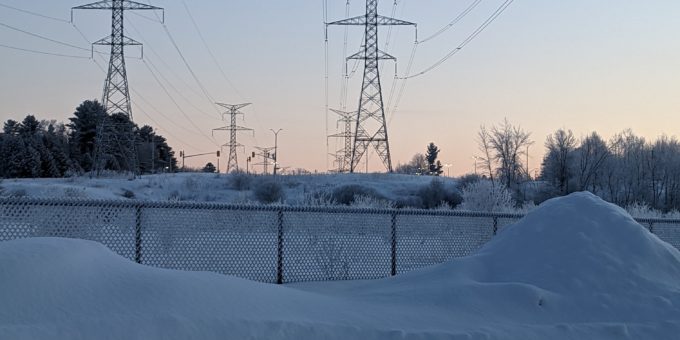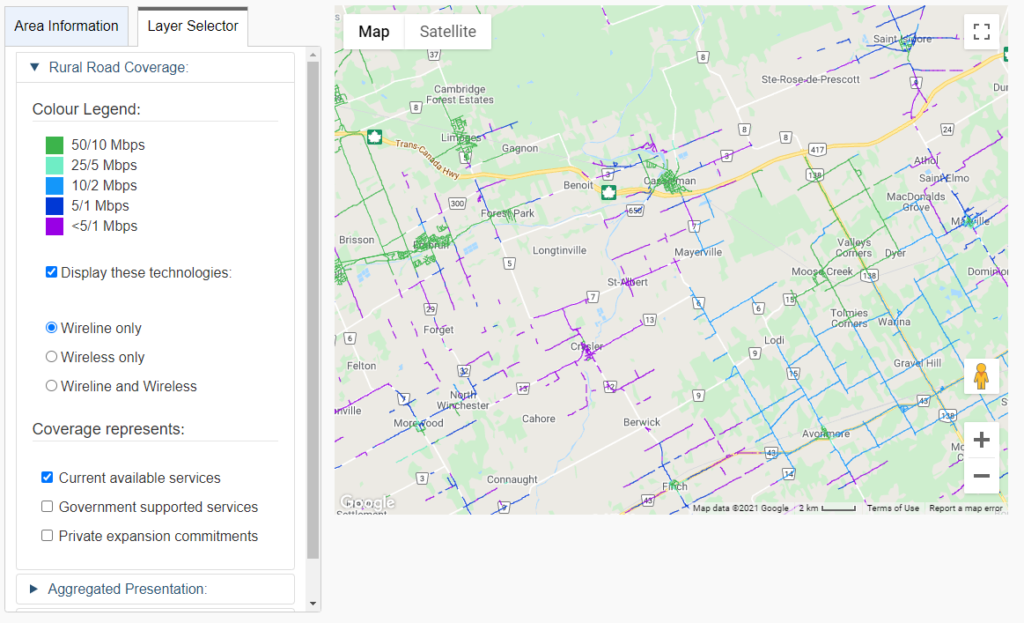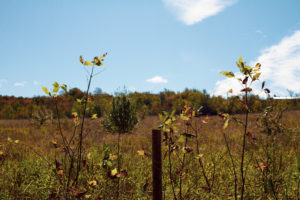
We thought we had done a pretty good job considering some of the issues we would come up against when looking for a home in our new part of the province. We learned about wells, septic, zoning and by-laws. We thought about the machines we might need to take care of our land, and we looked at areas that would still be a reasonable drive to work. One thing we didn’t consider was just how slow and even unavailable internet is in some of the places we were looking. Foolish and naïve? Absolutely. But here we are.
This wasn’t our first major shock when we started seriously looking at homes in Eastern Ontario. We had already come to the realization that our intended budget (based on last years MLS listings) was no longer realistic and that we needed to seriously compromise on how much land we would be able to buy. It turns out that the pandemic made everyone else want to leave the major population centers and get themselves a bigger home and some land to go with it. Homes are priced for bidding wars and one house we put on offer on had 15 other offers! We adjusted our expectations and even found some homes that we thought would be great for us.
It turns out some of these houses don’t have internet service. Or at least, not the kind we are used to and need for our work. You see, H works from home in a position where he not only needs to upload and download a lot of data frequently (code), but he is also leading a team, so the majority of his day is spent in video meetings. This is a permanent thing for him, whereas my 3 days a week at home is temporary.
In general, most homes that we would have been very happy with had only really slow DSL, satellite or Wi-Fi – which I didn’t even know was a thing until we moved here! I’m very thankful to some of my new co-workers for explaining some of the challenges they have faced with their rural internet. Knowing that they are not able to participate in video meetings or even reliably work from home (unless they have cell enabled laptops) saved us from a nightmare scenario where we buy a house that we love but can’t pay for it because we can’t work.
We found that it wasn’t enough to go on to an ISPs website and see if they offered service. For one, the addresses for these homes often didn’t register in their data bases and secondly these websites offer best guesses, not guarantees. If we place we liked showed up as maybe having internet we would call up the company and ask for details. Often they would say they couldn’t promise anything until someone came to site, which isn’t really an option for a potential home buyer. Asking the current homeowner wasn’t a great option either. Folks often didn’t know or provide the technical details we requested through our real estate agent. With most listings coming with a set offer day that falls shortly after listing, we were spending a lot of time on the phone with ISPs, trying to get any information we could. It was exhausting.
We passed on a few places that would have been excellent for us because we weren’t sure about the internet. Funnily enough, a day or so after an offer is accepted on these places, I would see posts in the local Facebook groups asking for high speed internet options…oops!
What is available
In one such post a commenter provided a link to the National Broadband Internet Service Availability Map, which we really wish we had known about when we started our search. I mean, look at this:

The screenshot above shows wired internet connections only – excluding satellite and Wi-Fi. We need green or even teal (if we’re feeling brave) and well, there isn’t much out there. This is helping us realize that we need to compromise from our original expectations a bit more and will be a really helpful tool for knowing which houses to not even bother viewing.
Compromises
We came out here wanting to spend no more than $400,000 on at least 1 acre with 2+ bedrooms and 2+ bathrooms, and that’s just not going to happen. We have settled on the idea that our first non-rental home may not be our forever home, and that’s okay. Perhaps we will spend a few years there and in the meantime rural internet will improve (Starlink?). At that point we would have the option to move up to a bigger piece of land. Or maybe we’ll realize we have enough and stay put.



